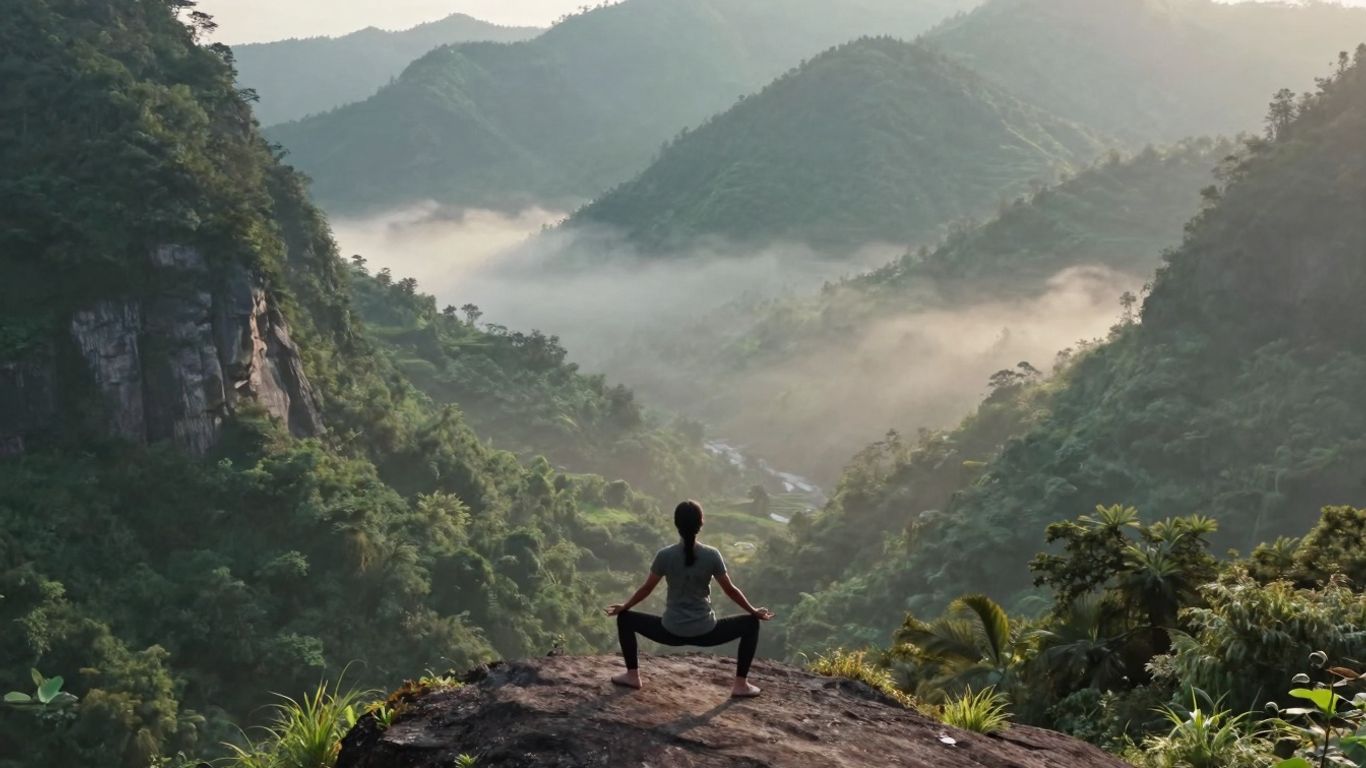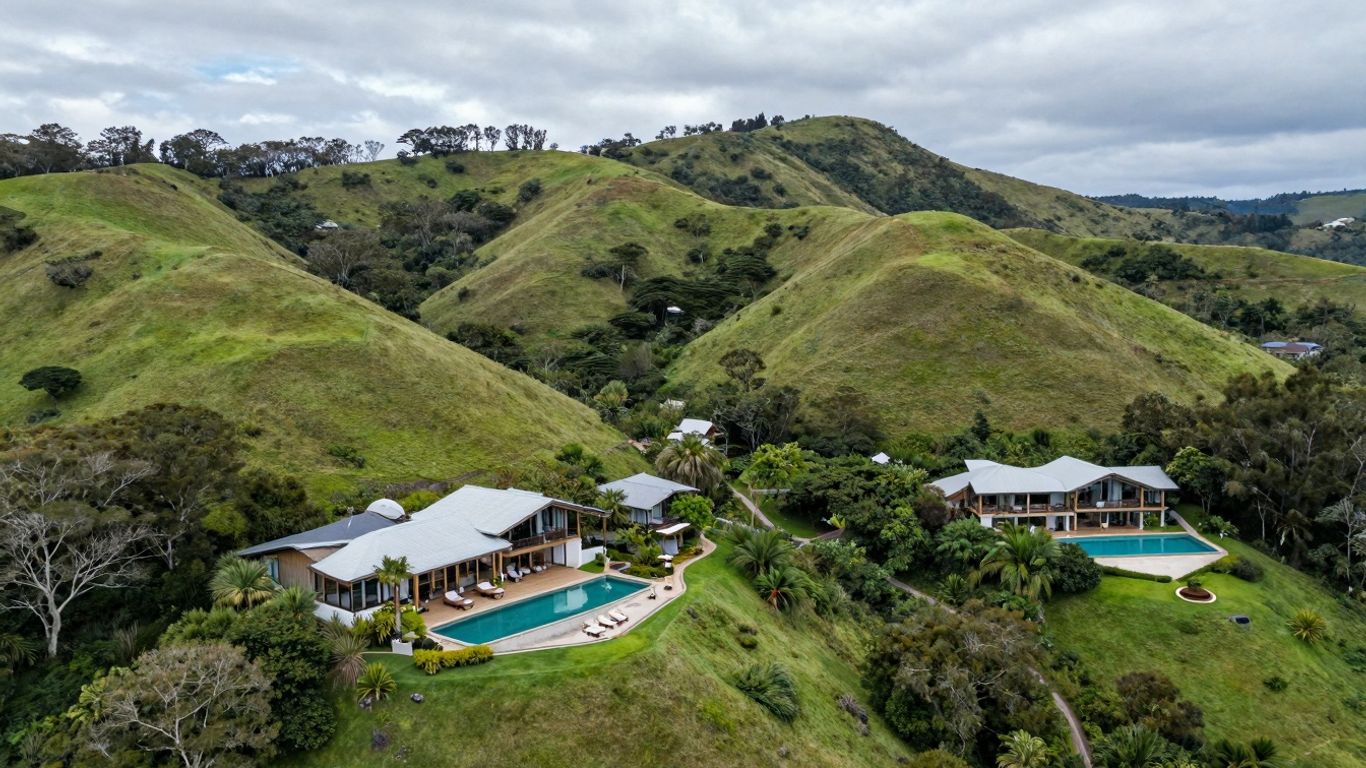Feeling a bit frazzled by the daily grind? Sometimes you just need to hit the pause button, right? Well, if you’re in Melbourne and looking for a way to find some calm without breaking the bank, you’re in luck. Discovering a silent retreat melbourne free might sound tricky, but there are options out there. It’s all about finding that quiet space to just be, away from the usual hustle and bustle. Let’s explore how you can find a bit of peace right here.
Key Takeaways
- You don’t always need to travel far to find peace; sometimes, serenity is closer than you think, even near Melbourne.
- Silent retreats offer a chance to step back from daily life, helping you to clear your head and understand yourself better.
- While paid retreats are common, keep an eye out for community-run events or places that work on a donation basis to find free or low-cost options.
- Getting ready for a silent retreat involves thinking about why you’re going and packing smart, so you can focus on being present.
- It’s normal to feel a bit uncomfortable or restless during silence; seeing these feelings as part of the process can actually help you grow.
Discovering Serenity Near Melbourne
Sometimes, you just need a break from the everyday hustle. Melbourne and its surrounds offer some surprisingly peaceful spots if you know where to look. You don’t always need to travel for days to find a bit of quiet; there are places closer than you might think that can help you reset.
Embracing Stillness in Nature
Getting out into nature is a classic way to find some calm. Think about the feeling of being surrounded by trees, or the sound of waves on a quiet beach. These natural settings can really help quiet the noise in your head. It’s about stepping away from screens and deadlines and just being present with the environment around you. Even a short trip to a park or a nature reserve can make a difference.
Finding Peace Within Reach
It’s easy to think that finding peace means a big, expensive trip. But that’s not always the case. There are options right here, not too far from the city, that offer a chance to slow down. These closer retreats mean less travel stress and more time for actual relaxation. It’s about making that quiet time accessible, even with a busy schedule.
Urban Sanctuaries for Inner Calm
Who would have thought you could find peace in the city? Well, it turns out you can. Some places have created quiet zones right in the middle of the urban sprawl. These spots might be in unexpected locations, like a quiet room in a hotel or a dedicated space in a community centre. They prove that you don’t need to be miles away from everything to find a moment of stillness. It’s about creating a pocket of calm where you least expect it.
The Essence Of A Silent Retreat
So, what exactly is a silent retreat all about? At its heart, it’s about hitting the pause button on the usual hustle and bustle of life. Think of it as a dedicated time, maybe a weekend or even longer, where you commit to what’s often called ‘noble silence’. This means no chatting, no making eye contact, and definitely no scrolling through your phone. It’s just you, your breath, and whatever thoughts pop up. The whole point is to carve out a space for some serious self-reflection, mindfulness, and finding a bit of inner calm.
What to Expect in Silence
During a retreat, you’ll likely find yourself doing a mix of things. There will be meditation sessions, of course, and often guided walking meditation to help you stay grounded. Some places might offer gentle yoga too. These activities aren’t just busywork; they’re designed to keep you present and aware of your body, your mind, and what’s going on around you. It’s a chance to really tune into yourself without the usual distractions.
Benefits for Mind and Soul
Stepping away from the noise can bring some pretty amazing benefits. For starters, it can really help dial down stress and anxiety. When you’re not constantly bombarded with external stimuli, your mind gets a chance to relax. You might also find your focus sharpens up, and you gain a clearer perspective on things. It’s also a space where you can process emotions that might usually get pushed aside, leading to a deeper sense of self-awareness. Many people even report feeling a stronger connection to something bigger than themselves.
The beauty of prolonged silence is that we get to see that all experience comes and goes. While these feelings can feel challenging at times, they reveal our incredible resilience.
Navigating Inner Landscapes
It’s not always going to be smooth sailing, though. Spending time in silence can bring up all sorts of things – boredom, physical discomfort, or even strong emotions. This is totally normal. Think of it as an opportunity to observe these feelings without judgment. When the usual distractions are gone, your inner world becomes more apparent. It’s in these moments of discomfort that real growth can happen, helping you understand your own patterns and reactions better.
Preparing For Your Silent Retreat
So, you’re thinking about heading off to a silent retreat? That’s brilliant! It can feel a bit strange at first, the idea of not chatting for a few days, but honestly, it’s where some real magic happens. Getting ready beforehand makes a huge difference, though. It’s not just about chucking a few things in a bag; it’s about setting yourself up for a peaceful experience.
Setting Intentions for Growth
Before you even pack your toothbrush, take a moment to think about why you’re doing this. What are you hoping to get out of the silence? Maybe you’re feeling stressed and just need a break, or perhaps you’re looking for some clarity on a big decision. Whatever it is, jotting it down can be really helpful. It gives your retreat a purpose, a direction. Think of it like setting a destination before you start a road trip.
- Clarify your ‘why’: What’s the main reason you’re seeking this time of quiet?
- Identify desired outcomes: What do you hope to feel or understand by the end?
- Be open: Acknowledge that things might not go exactly as planned, and that’s okay.
Sometimes, the most profound insights come when we let go of rigid expectations and simply allow ourselves to be present with whatever arises. Trust the process, even when it feels a bit wobbly.
Packing Essentials for Solitude
When it comes to packing for a silent retreat, think simple and comfortable. You won’t need much, and that’s part of the point – less stuff, fewer distractions. Layers are your best friend, as retreat centres can sometimes be a bit chilly, especially in the early mornings or evenings. Don’t forget any personal items you absolutely need, like medication.
Here’s a quick rundown of what to consider:
- Comfortable Clothing: Think loose-fitting, soft fabrics. You’ll be sitting and moving around a lot.
- Warm Layers: A jumper, cardigan, or shawl is a must.
- Toiletries: Keep it minimal – just the basics.
- Medication: Any prescriptions or over-the-counter remedies you use.
- Water Bottle: Staying hydrated is important.
- Journal and Pen: For jotting down thoughts or reflections (if you choose to).
Mindfulness Practices Before You Go
If you’re not used to a lot of quiet time, jumping straight into a silent retreat might feel a bit intense. It can be super beneficial to ease yourself into it. Try incorporating a few simple mindfulness practices into your daily routine in the week or two leading up to your retreat. This could be as simple as taking a few minutes each day to focus on your breath, or going for a short walk and really paying attention to what you see, hear, and feel.
- Short Meditation Sessions: Start with 5-10 minutes daily.
- Mindful Moments: Pick one daily activity (like brushing your teeth or drinking tea) and do it with full attention.
- Digital Detox Lite: Try to reduce your screen time a little each day. Maybe leave your phone in another room for an hour or two.
Finding Free Retreat Options

Thinking about a silent retreat but worried about the cost? It’s a common hurdle, but the good news is that finding accessible, even free, options around Melbourne is totally doable. You don’t always need a hefty bank balance to find some quiet time.
Exploring Community Offerings
Lots of local communities and spiritual centres offer programs that lean towards donation-based or are outright free. These places often run on the goodwill of volunteers and the generosity of participants. Keep an eye out for meditation groups or Buddhist centres in the city and surrounding suburbs. They might have regular silent sitting sessions or occasional weekend retreats where a small donation is appreciated, but not mandatory. It’s worth checking out places like the Buddhist centres or even some yoga studios that might host community meditation days.
Understanding Donation-Based Retreats
Donation-based retreats are a fantastic way to experience a silent retreat without a fixed price tag. The idea is that you contribute what you can afford, or what you feel the experience was worth, after you’ve completed it. This model relies on trust and aims to make these restorative experiences available to everyone, regardless of their financial situation.
- What to expect: These often involve simple accommodation and vegetarian meals. The focus is purely on the practice of silence and meditation.
- Contribution: While ‘free’, a donation is expected. Think about what you would normally pay and contribute what feels right for you.
- Finding them: Look for retreats advertised as ‘dana’ or ‘donation-based’. Websites that list silent yoga retreats in Australia sometimes feature these, though you might need to dig a bit deeper.
It’s important to remember that even ‘free’ retreats have costs associated with running them – food, utilities, and upkeep. A donation, however small, helps keep these spaces going for others.
Resources for Accessible Silence
Several online platforms and local organisations are dedicated to listing affordable and free wellness activities.
- Insight Timer: This app has a huge library of guided meditations and also lists many retreats, including some that are donation-based or very low cost. You can filter by location and type of retreat.
- Local Community Boards: Check notice boards at libraries, community centres, and even some cafes. Small, local groups often advertise their events this way.
- Word of Mouth: Talk to people who practice meditation or mindfulness. They often know about hidden gems and local initiatives that aren’t widely advertised.
Don’t underestimate the power of simply asking. If you find a centre that looks promising but seems out of your budget, reach out. Many are willing to work with individuals to find a way for them to participate.
Deepening Your Practice
So, you’ve done the silent retreat, and maybe it was a bit of a shock to the system at first. That’s totally normal. The real magic, though, happens when you start to weave what you learned back into your everyday life. It’s not just about the quiet days away; it’s about bringing that sense of calm and awareness with you.
Cultivating Self-Awareness
This is where you really start to notice things. Without the usual distractions, you become more aware of your own thoughts, feelings, and how you react to different situations. It’s like turning up the volume on your inner world. You might start seeing patterns in your behaviour that you never noticed before, or perhaps you’ll become more attuned to what truly makes you tick.
- Noticing your reactions: Pay attention to how you respond to everyday stresses. Are you getting easily frustrated? Or are you finding yourself more patient?
- Recognising your triggers: What situations or people tend to set you off? Awareness is the first step to managing these reactions.
- Listening to your body: Our bodies often tell us what they need. Are you tired? Hungry? Stressed? Learning to tune in is a big part of self-awareness.
Embracing Discomfort as Growth
Let’s be honest, sitting with yourself for extended periods can bring up some uncomfortable stuff. Old worries, anxieties, or even just plain boredom can surface. The trick here is not to push it away, but to acknowledge it. Think of discomfort not as a sign you’re doing something wrong, but as a sign that you’re growing. It’s in those moments of unease that we often learn the most about ourselves and build resilience.
When you’re in silence, the usual ways you distract yourself or avoid difficult feelings are gone. This can feel tough, but it’s an opportunity to see these things clearly and understand that they don’t last forever. It’s about learning to be with whatever comes up, without needing to fix it immediately.
Integrating Insights Post-Retreat
Coming back from a retreat can feel a bit jarring. The quiet is gone, and the world rushes back in. The key is to hold onto that sense of peace you found. Try to keep up some of the practices you started, even if it’s just for a few minutes each day. Maybe it’s a short meditation in the morning, a mindful walk during your lunch break, or simply taking a few deep breaths when you feel overwhelmed.
Here’s a simple way to start integrating:
- Daily Check-in: Spend 5 minutes each morning reflecting on your intentions for the day.
- Mindful Moments: Choose one activity each day to do with full attention – like drinking your morning coffee or washing the dishes.
- Journaling: Jot down any insights or challenges you encounter, especially those that remind you of your retreat experience.
It’s a gradual process, and some days will be easier than others. Be kind to yourself as you bring the lessons of silence back into the hustle and bustle of life.
Melbourne’s Retreat Landscape

Melbourne and its surrounds offer a surprising number of places where you can find a bit of quiet, even if you’re not looking to travel too far out of the city. It’s not all about grand, faraway escapes; sometimes, the most accessible peace is right under our noses.
Monasteries Offering Solitude
For those seeking a deeper dive into stillness, some Buddhist monasteries in the region open their doors for retreats. These places are often set in beautiful, natural surroundings, providing a genuine escape from the daily grind. Think peaceful gardens, quiet halls, and a strong sense of community dedicated to mindfulness. These centres often operate on a donation basis, making them a truly accessible option for finding inner calm. It’s a chance to experience a different pace of life, surrounded by nature and a supportive, quiet atmosphere.
Dedicated Meditation Centres
Beyond the monastic settings, Melbourne has several centres specifically focused on meditation and mindfulness practices. These places might offer structured programs or simply provide a quiet space for individuals to practice on their own. They often have experienced teachers available if you’re looking for guidance, but many also welcome people who just need a peaceful environment to sit in silence. Some might have specific retreat days or longer stays available.
Local Sanctuaries for Peace
Sometimes, you don’t need to go far at all. There are urban retreats and wellness centres within the city itself that aim to provide a sanctuary from the hustle and bustle. These might be located in unexpected places, like a penthouse with city views, offering a unique blend of urban convenience and inner peace. They often focus on short, intensive sessions designed to help you reset and refocus, perfect for a busy schedule. These can include:
- One-day retreats: Great for a quick reset without taking time off work.
- Urban sanctuaries: Finding calm in unexpected city locations.
- Tailored experiences: Some centres work with you to create a retreat that fits your specific needs, whether it’s for personal growth or professional development.
It’s worth exploring what’s available locally; you might be surprised at the quiet corners you can discover right here in Melbourne.
Finding Your Quiet Corner
So, there you have it. Finding a bit of peace doesn’t always mean hopping on a plane. Melbourne and its surrounds actually have some decent options if you’re keen to just switch off for a bit. Whether it’s a day retreat in the city or a weekend away in the countryside, taking that time for yourself is the main thing. It’s not always easy, and yeah, sometimes it feels a bit weird being that quiet, but honestly, it’s worth it. Give it a go, you might surprise yourself with what you find when you just stop for a while.
Frequently Asked Questions
What exactly is a silent retreat?
A silent retreat is a special time where you agree not to talk. It’s like hitting the pause button on all the noise and chatter of daily life. You get to spend time just being, without distractions, to help you feel calmer and understand yourself better. It’s a chance to really listen to your own thoughts and feelings.
Are there really free silent retreats near Melbourne?
Finding completely free retreats can be a bit tricky, but there are options! Sometimes places like Buddhist monasteries or meditation centres offer ‘donation-based’ retreats. This means you can give what you can afford, or what you feel the experience was worth. It’s worth looking into community groups or centres that focus on mindfulness and inner peace.
What should I expect if I go on a silent retreat?
You can expect a lot of quiet time! Most retreats will have set times for meditating, maybe some gentle walks, and meals. You won’t be talking to others, and often you’ll be asked to avoid using phones or reading. It might feel a bit strange at first, but it helps you focus inwards. Sometimes, you might feel bored or a bit restless, and that’s totally normal!
Is it hard to stay silent for a whole retreat?
It can be challenging, especially at the start! Our minds are used to constant activity. You might find yourself wanting to chat or get distracted. But the whole point is to notice these feelings without acting on them. Think of it like watching clouds drift by – you see them, but you don’t have to grab onto them. The longer you practice, the easier it gets.
What are the benefits of doing a silent retreat?
Loads of good stuff! You can feel much more relaxed and less stressed. It’s a great way to get to know yourself better, understand your thoughts and feelings, and maybe even figure out things you’ve been wanting to change. Many people find they feel more peaceful and clear-headed afterwards, and they learn how to handle tricky feelings better.
How do I prepare for a silent retreat?
Before you go, try to set a goal for yourself – like wanting to feel calmer or understand something better. Pack comfy clothes and anything you absolutely need, but try to pack light. Maybe practice a bit of quiet time at home, like sitting still for 10 minutes, to get your mind used to it. The most important thing is to go with an open mind and be kind to yourself during the experience.





